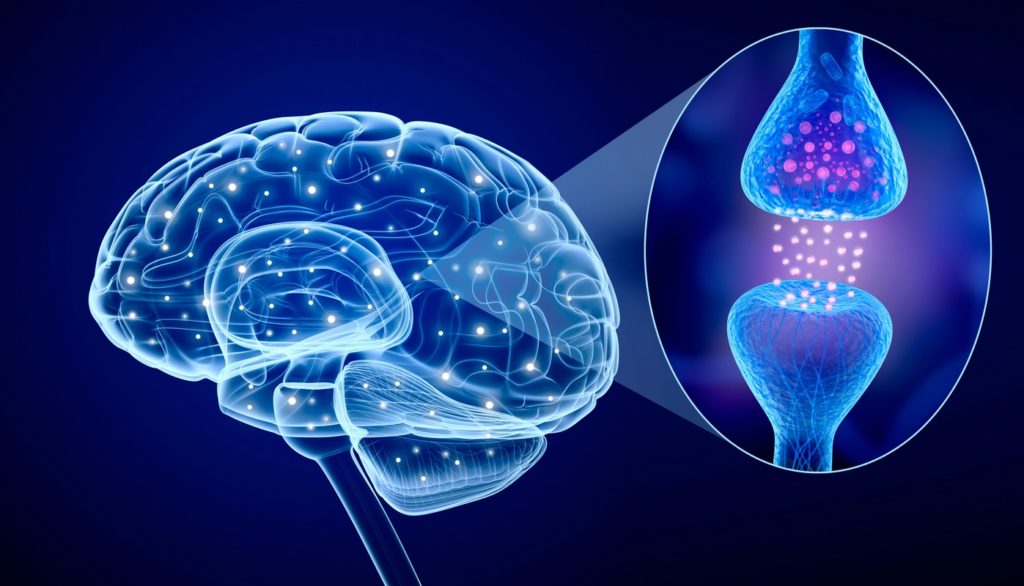As we gain an understanding of the disease of drug addiction, it becomes apparent that a combination of factors is at work. Not only are there chemical reactions and changes within the brain that occur with addiction, but physical or emotional trauma can also be causative factors. For this reason, inpatient treatment facilities and outpatient drug detox centers seek to heal not just the effects, but the causes of addiction.
But what makes some individuals become addicted to alcohol or drugs?
Why do some substances cause the obsessive drug-seeking behavior of an addict while others do not?
To better answer these questions, let’s explore the chemical causes of addiction, other factors that contribute to developing drug dependence, and the changes that occur in the brain which cause cravings and relapse when those substances are eliminated.
What Is Drug Addiction?
Drug or alcohol addiction is a chronic, relapsing disease, medically characterized as a brain disorder. Addiction refers to both the physical symptoms and the mental changes that cause the inability to abstain from chemically rewarding behavior, even when faced with negative consequences.
Drug dependence is a physical condition where the body has become accustomed to the presence of the drug and has changed how it functions to compensate for it. Once the body is dependent on the addictive substance, withdrawal symptoms will occur when the individual stops using the drug.
What Makes Some Substances So Addictive?
Setting aside the psychological and social factors, for now, a biological process is at the core of addiction. In order to be addictive, a substance must:
- Be self-rewarding. It must create a pleasurable or desirable effect, mental state, or physical sensation. It may be first used to counteract existing mental or physical distress.
- Be self-reinforcing. This means that the body recognizes these effects as related to the substance, causing it to crave or seek the substance again. Each time the reward is obtained, the drug-seeking behavior is reinforced.
- Be fast-acting. For the brain to reliably connect the substance with its effects, those rewarding responses must happen soon after using the drug. Substances with immediate and dramatic effects tend to be highly addictive.
Using a mildly addictive substance like caffeine, as an example, a cup of coffee or an energy drink provides a burst of energy by artificially stimulating the adrenal system, and it does so every time we drink it. We feel the effects quickly, so our body learns to want coffee to reverse fatigue. After drinking coffee every day, we begin to feel a headache coming on and tired without it.
Caffeine addiction is not a serious problem for most people, and the withdrawal symptoms are mild. The boost we get from caffeine is not enough to create obsessive coffee-seeking behavior even in the face of serious life consequences. However, other substances like alcohol, methamphetamines, or heroin cause such intense and immediate effects on the body that they may require medically supervised detox.
Why Don’t We Get Addicted to Salad?
The reason we don’t get addicted to healthy substances that make us feel good over time is that the long-term connection between eating kale and feeling great takes too long for the body to recognize. Making healthy life choices relies instead on logical thinking, education, and learning the life skills that encourage delayed gratification and feeling good naturally.
What Other Factors Contribute to Drug Addiction?
Still, we know that not every individual will react to an addictive substance in the same way. There are risk factors that increase the likelihood that an individual will become addicted to drugs.
Some of these include:1
- Genetic or epigenetic factors. There appear to be biological or inherent tendencies to addictive behavior. In some cases, the addiction appears to run in families. It is possible that, in the early stages of addiction, some dormant genes are “turned on” by the drug, which causes a rapid progression of the disease.
- Environment and social factors. Exposure to drugs through family and friends is a risk factor, as is economic status and general satisfaction with life. Easy access to drugs, including prescription drugs, can lead to experimentation.
- Emotional issues and mental health challenges. Stress, abuse, or trauma also greatly increase the likelihood of drug use and eventual addiction. Experiencing untreated depression, anxiety, or PTSD can cause self-medicating behavior.
- Developmental impacts. The earlier that a person begins using drugs, the more likely they are to experience problems with normal mental and physical development. Especially for teens, drug use impacts the still-developing areas of the brain that control judgment, decision making, and impulse control.
How Do Drugs Affect the Brain?
 Most addictive substances affect the brain by causing a sudden increase in the chemical dopamine.2 Dopamine triggers the brain’s reward center, causing a feeling of pleasure and euphoria. This is an overload of the natural reward triggers, resulting in the feeling of being “high.”
Most addictive substances affect the brain by causing a sudden increase in the chemical dopamine.2 Dopamine triggers the brain’s reward center, causing a feeling of pleasure and euphoria. This is an overload of the natural reward triggers, resulting in the feeling of being “high.”
The process works like this:
- The brain quickly adapts to the higher levels of dopamine and other feel-good brain chemicals.
- It takes more and more dopamine to get the same effect from the brain, which is becoming dependent on the drug, causing higher doses to be used.
- Natural production of dopamine from healthy activities like exercise is reduced.
- Eventually, only drug use can produce feelings of pleasure or normalcy.
- Stopping the substance leaves the brain in a state of chemically induced depression until balance is restored.
The chemical balance in our brain is a key component of how we perceive reality. Addiction filters our perception to the exclusion of all other interests in the constant pursuit of its toxic cycle. Everything is perceived through the fog of a brain which is out of balance and in distress.
Your Brain on Drugs
Knowing the basic inner workings of the brain will help us understand how to detox from drugs. The structures, chemicals, and neurons within the brain work together to control all the body’s functions.
Here’s how that process normally works:2
- Each nerve cell, or neuron, receives signals from the nerves around it.
- When it receives enough stimulation, it “fires” and sends its own signal across a small gap, called a synapse, to relay important messages or information.
- It uses a chemical neurotransmitter like dopamine or serotonin to bridge that gap.
- Other molecules, called transporters, recycle the neurotransmitters, allowing the nerve impulse to stop and, eventually, to fire again.
How Do Drugs Change Brain Function?
Some substances mimic the chemical structure of a natural neurotransmitter, allowing them to directly attach to neurons and influence their communication. Because they are chemically different, they lead to confused or false messages. Heroin addiction is caused by this direct replacement of an artificial chemical for a naturally occurring one.
Other drugs stimulate the nerve cells and brain tissues to over-produce the neurotransmitters or stop them from being recycled. Stimulants like amphetamines or cocaine work in this way. The abnormally high levels of activity and the inability of neurons to stop firing when they should interfere with nerve communication.
Drugs like opioids and alcohol slow down the basic functions which are controlled by the brain stem. This not only causes the numbing of physical pain, but also impairs thinking, heart rate, and breathing.
What Specific Areas of the Brain Are Affected by Drugs?
- The basal ganglia. This is the famous “reward circuit” of the brain, responsible for the pleasure we feel from eating, socializing, and being romantic. This reward response is intended to help us form habits that will make us happy and healthy. Drug use artificially stimulates this area.
- The extended amygdala. This function of this area of the brain is to produce appropriate feelings of anxiety, irritability, or emotional pain. Many drugs of abuse function by dulling these responses. Drug or alcohol withdrawal stimulates this area of the brain temporarily until sustained sobriety heals this sensitivity.
- The prefrontal cortex. This is the area of the brain where we think, plan, decide, and solve problems. Impulse control takes place here as well. The garbled communications of the neurons under the influence of drugs impact healthy brain development, clear thinking, and logical decision-making.
How Do the Mind and Body Recover from These Changes?
 Full recovery depends not just on achieving sobriety, but on treating all aspects of the disease. Evidence-based substance abuse treatment programs like BlueCrest Recovery Center focus on healing the root causes of addiction while simultaneously treating co-occurring conditions like depression or PTSD.
Full recovery depends not just on achieving sobriety, but on treating all aspects of the disease. Evidence-based substance abuse treatment programs like BlueCrest Recovery Center focus on healing the root causes of addiction while simultaneously treating co-occurring conditions like depression or PTSD.
There is always hope and healing available. Just as the brain adapts to the presence of an addictive chemical, it will heal in the absence of it. During the detox process, having the support of medical doctors and addiction specialists helps those on road to recovery achieve their treatment goals and improve their relationships.
Taking the step of choosing inpatient or outpatient drug detox restores a world of possibilities for your loved one’s future or your own. If you see the signs of growing addiction in yourself or someone else, the time to act is now. Reach out to our specialists online or by phone, and you can begin to reverse the effects of addictive drugs.
Sources:














